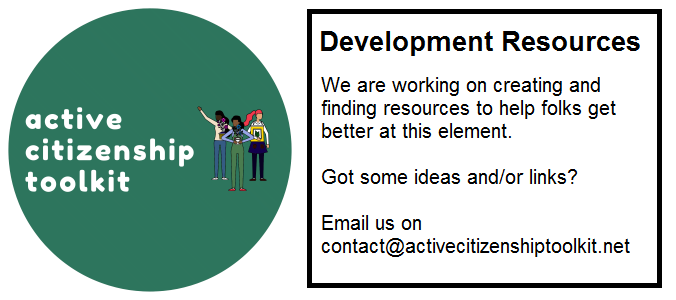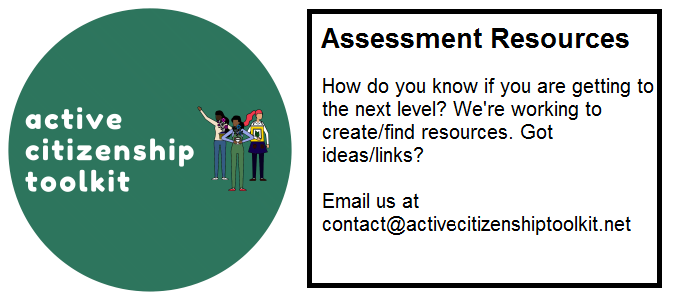Element Descriptor
Volunteers on a project/for a group require careful attention. They need to be given the right prompts, encouragement, support (without suffocation), opportunities to develop skills if they want to. If you don’t have the skills, you lose those people, lose morale and get a bad reputation, making future recruitment tricky.
Level descriptors
| Novice | Practitioner | Expert | Ninja |
|---|---|---|---|
| You can manage the needs and aspirations of one or two highly motivated and light-touch volunteers, who are engaging in simple roles and jobs within straightforward projects | You can manage the needs, aspirations and uncertainties of several volunteers, most of whom are self-starters and self-continuers, engaging in mostly simple roles (but sometimes complicated) within mostly straightforward and predictable projects | You are able to manage the needs, fears and emotions of several volunteers, of varying experience, ability and motivation, who are engaging in a range of jobs and roles, from simple through to edge of chaos, in various projects, including mission critical ones. You also know when and how to compassionately and sensitively take back mission-critical work | Without breaking a sweat you can manage multiple volunteers at different stages of development as they work on confusing to downright hellacious projects that are akin to punching a smoke monster, maintaining everyone’s situational awareness, motivation and clarity, while everyone can make breakthroughs/achieve more than they thought they would. |
Element Overview Essay
This is a draft. If something doesn’t make sense, or you see typos, or if you have further ideas, please email us on contact@activecitizenshiptoolkit.net
The causes of social movement organisations not being very good at volunteer management. Well, it’s a subset of project management, you need to know what it is specifically you want your volunteers to do in broad terms, you have to have detailed discussions with them around how to do those jobs, when to do them. And all of this requires a level of awareness of how the project is being run, and a willingness to sit down and have detailed conversations with people who may or may not be flaky..
Now, one of the underlying causes of social movement organisations not being good at volunteer management is they may have had either as individuals in this group or in previous groups, bad experiences of trying to delegate tasks. This is in part because the costs of lunching something out – promising to do something and then not doing it and not explaining that you’re not going to do it in advance- is so low. Our “activist” cultures have tolerated this for so long, that everyone’s kind of rolls their eyes and says “Yeah, delegation, volunteer management, great in theory, but in practice not so much”, and if you don’t believe that it can be a thing, then you’re not going to try and get better at it.
Obviously, the consequences of not doing good volunteer management is that you just lose access to a lot of people who would be up for doing a little bit regularly. What most folks are not up for is open-ended commitments or evening meetings or exhausting processes, because they’re busy, they’ve got the rest of their lives going on.
In order to get good at volunteer management, you really do need that “list of jobs and roles.”
You also need to know, individuals, the amount of time and talent they have, and you need to be willing to give feedback on past performance that was good and above expectations, and also on situations where, you know, they did the job late, they did the job half assed, and you don’t really want that anymore.
And that is the antithesis of the touchy feely, hold hands and “sing kumbaya”, “haven in the heartless world” that a lot of people are involved in social movement organisations for, whether they can admit it to themselves or not
Development Resources

Assessment Resources

